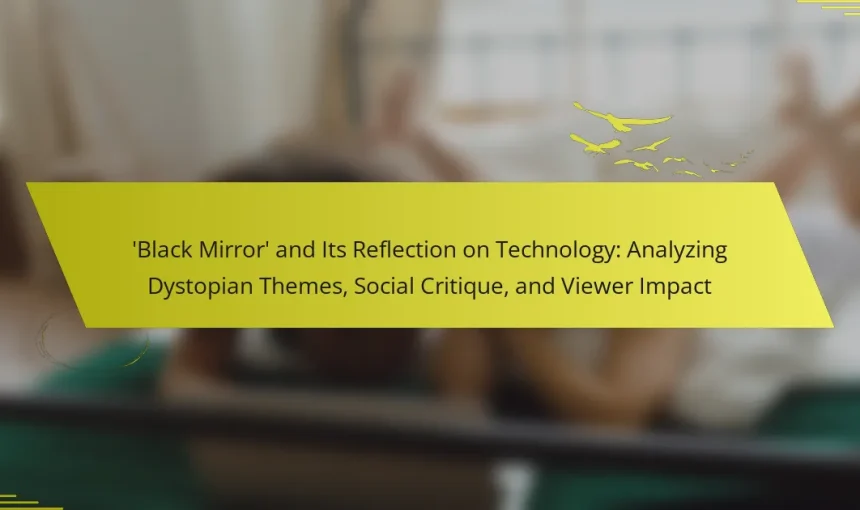The comedy genre encompasses literature, film, and performance designed to entertain and elicit laughter through various humor techniques, such as exaggeration and absurdity. Key subgenres of comedy include stand-up, sketch, sitcom, and improv, each with unique characteristics that cater to diverse audiences. Notable shows like “Friends,” “The Office,” and “Parks and Recreation” exemplify the genre’s […]
The article examines the evolution of science fiction (sci-fi) television shows, focusing on key elements such as technological advancements, narrative complexity, and cultural reflection. It highlights how innovations like CGI have transformed visual storytelling, while shows such as “The Expanse” and “Black Mirror” illustrate deeper thematic exploration and societal critiques. Additionally, the article discusses how […]
“This Is Us” is a television series that primarily targets adults aged 18 to 49, with a viewership demographic consisting of approximately 60% female and 40% male. The show has successfully attracted a diverse audience across various ethnicities, engaging viewers through its emotional storytelling and relatable themes. Emotional connection plays a crucial role in viewer […]
Audience feedback is a critical factor in TV show production decisions, influencing aspects such as content direction, character development, and narrative pacing. Producers analyze various data sources, including viewer ratings, social media reactions, and structured responses from surveys and focus groups, to understand audience preferences. Research indicates that 70% of viewers believe their opinions impact […]
Script quality is a fundamental element in TV show production that significantly impacts a show’s success. High-quality scripts engage audiences, enhance character development, and provide a coherent narrative structure. Effective dialogue within these scripts resonates with viewers, attracting talented actors and directors, which in turn elevates the overall production value. Research from the Writers Guild […]
Sherlock Holmes is a renowned fictional detective characterized by his exceptional deduction skills, intricate relationships, and personal struggles. This article explores how Holmes’ keen observation and logical reasoning contribute to his investigative success while revealing the complexities of human behavior. It highlights the significance of his relationship with Dr. Watson, showcasing the emotional support and […]
Eleven is a central character in the series Stranger Things, known for her transformation from a powerless child to a strong individual with psychokinetic abilities. This article examines Eleven’s character development, highlighting her journey of overcoming trauma, understanding her identity, and forming deep friendships, particularly with Mike. Key themes such as identity, trauma, and friendship […]
‘Black Mirror’ is a television anthology series created by Charlie Brooker that delves into the dark aspects of modern society and technology. The series features standalone episodes that critique the impact of technology on human relationships and societal norms, exploring themes such as privacy, artificial intelligence, and social media. Viewers often experience heightened anxiety and […]
Location scouting is a critical process that enhances the authenticity of TV shows by selecting real-world locations that accurately reflect the story’s setting. Authentic locations significantly contribute to the believability of narratives, fostering a deeper emotional connection with viewers. Research indicates that 70% of audiences prefer shows with realistic settings, which enhances their engagement and […]
The article examines the social influence of the television show ‘Friends,’ highlighting its role in shaping cultural norms and perceptions of relationships. It discusses how the show popularized specific phrases and behaviors, resonating with audiences through themes of friendship, love, and personal growth. Key aspects include the impact of character dynamics on standards for friendship […]








